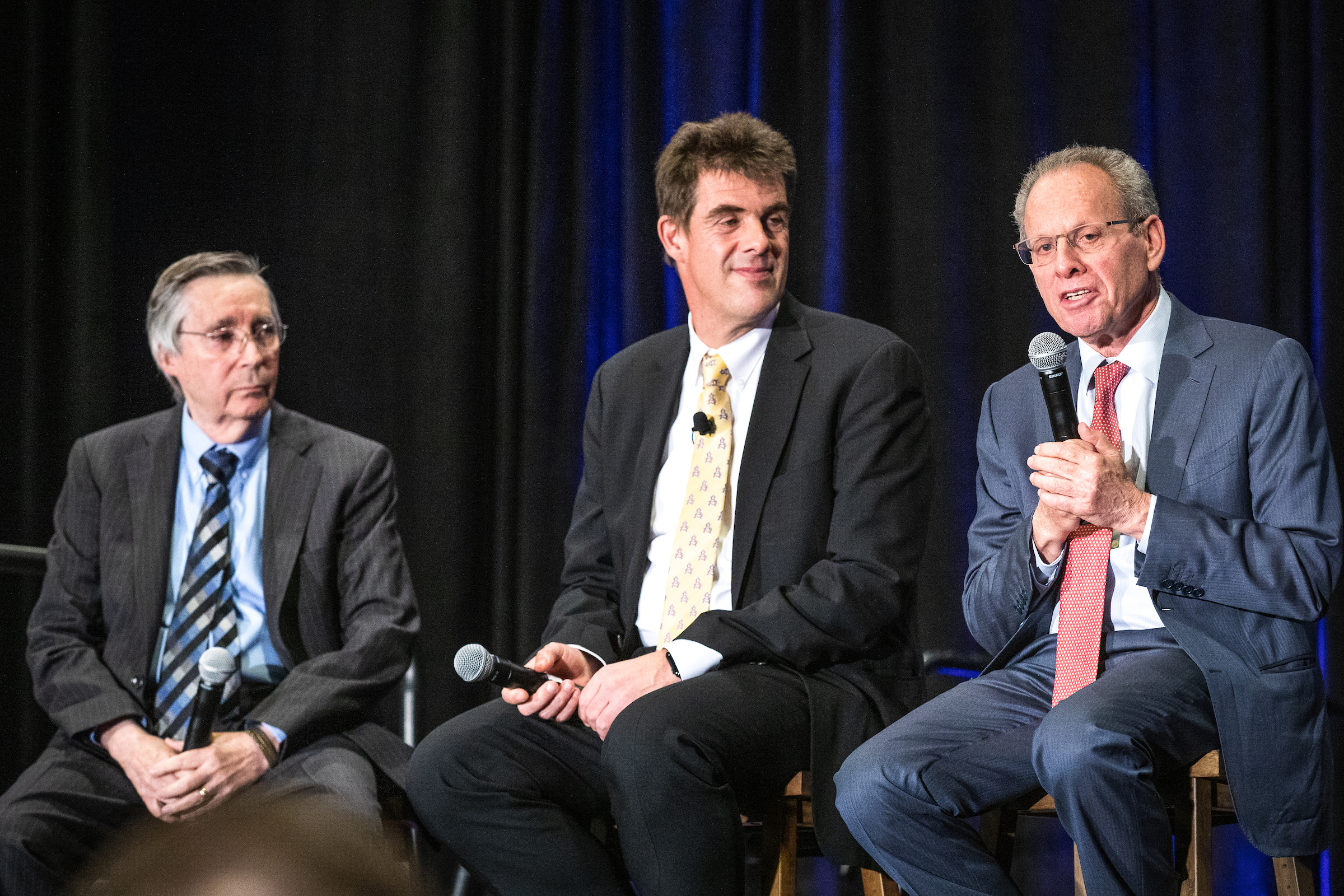Arizona's economic growth slowing but will remain strong, ASU expert predicts
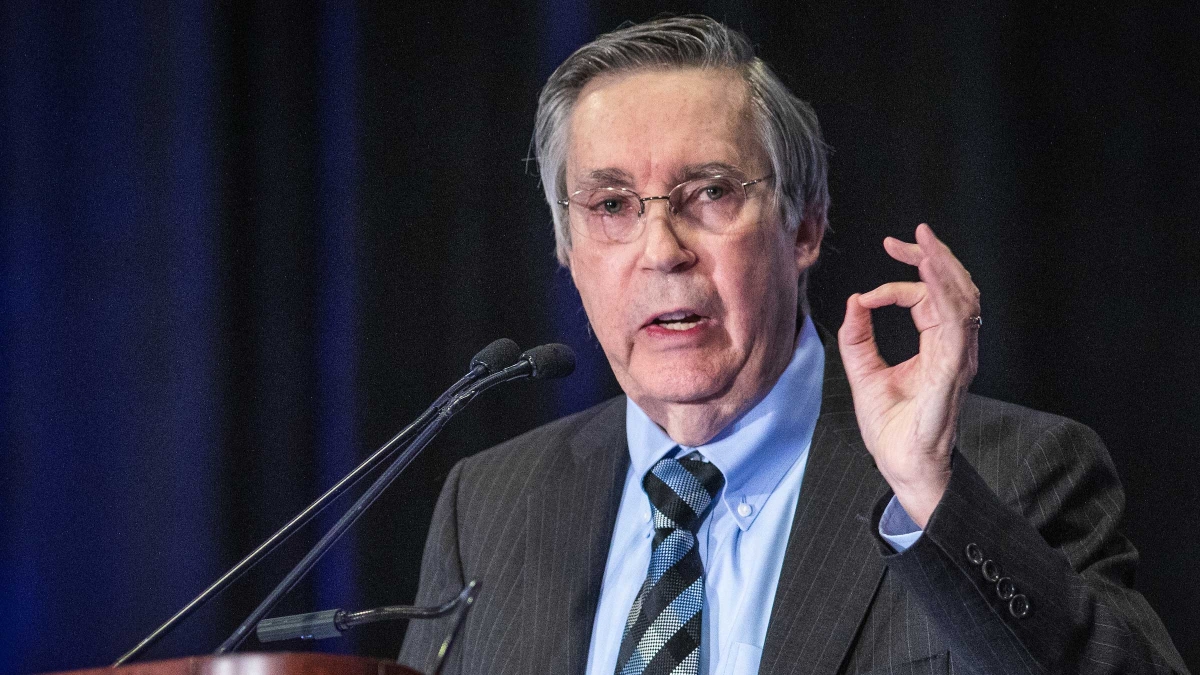
The growth in Arizona’s economy is slowing but the outlook remains strong for 2020, according to Arizona State University’s economic outlook expert.
“We have enjoyed a robust recovery — somewhat slow to get started but since then proceeding at a good clip,” said Lee McPheters, research professor of economics and director of the JPMorgan Chase Economic Outlook Center at ASU. He spoke at the 56th annual Economic Forecast Luncheon held Wednesday by the W. P. Carey School of Business.
Arizona is expected to add about 70,000 jobs in 2020, compared with 74,000 in 2019 and nearly 79,000 in 2018, he said. The state was third in the country for job growth this year.
About 14,000 jobs in health care were added in 2019, second only to construction, which added nearly 17,000, his analysis shows.
“Construction is important in a growth state like Arizona, but Arizona is also a top 10 state for transportation and warehousing, science and technology, manufacturing and health care,” he said. “We have a diverse structure of growth now. It’s not all real estate and construction.”
In addition, the average annual wage is predicted to tick up to $55,600 next year, up from $53,700 this year.
Population growth also is starting to wind down, with 110,000 new residents expected next year, down from nearly 123,000 in 2018.
McPheters noted three interesting factors in the long-term view of the state economy.
- Millennials are driving housing growth, with people born between 1981 and 1996 accounting for more than a quarter of new mortgage originations. “They’re a core part of the economy, and there are more millennials than baby boomers now,” he said.
- Economic growth in the state is concentrated in the Phoenix area. “What we’re seeing is about 85% of everyone who moves to Arizona moves to metro Phoenix,” he said. “Phoenix accounts for 70% of all new single-family housing permits and 85% of new jobs. Tucson just recovered from the low point of the recession in April of this year.”
- He worries about the effects of climate change. “In Phoenix you have the potential for a week to 10 days of 122-degree temperatures. What would happen then?” he said. “Will a 122-degree heat wave be Phoenix’s Katrina?”
With the U.S. economy, consumers are more optimistic about next year than businesses, according to Bart Hobijn, professor of economics in the W. P. Carey School.
“Consumers like what’s going on in the economy,” he said. “They’re feeling good, and that’s because income is growing.”
The experts answer questions at the 56th annual Economic Forecast Luncheon held Wednesday by the W. P. Carey School of Business at ASU. From left are Lee McPheters, research professor of economics and director of the JPMorgan Chase Economic Outlook Center at ASU; Bart Hobijn, professor of economics at ASU, and Robert Barro, the Paul M. Warburg Professor of Economics at Harvard University. Photo by Charlie Leight/ASU Now
He noted that the 3.5% growth in wages nationwide is not “gangbusters” but is positive after years of stagnation.
“There seems to be a lot of talk about income inequality, but wages for low-skilled workers have risen over the last few years and that’s because of scarcity,” he said. “By now, most of people willing and able to work have been hired.”
Hobijn said that businesses are expressing less confidence in the economy because of uncertainties over the Trump administration’s trade policies.
“And if you survey CEOs, they’re even more negative because they also consider the global economy, which looks worse,” he said.
The trade wars are a risk to economic growth in the U.S., according to Robert Barro, the Paul M. Warburg Professor of Economics at Harvard University, who spoke at the event.
He cited President Donald Trump’s quote in 2018: “Trade wars are good and easy to win.”
“It’s a very upsetting thing to say from the perspective of an economist,” he said. “Trump’s statement reminds me of what Nixon was most guilty of — not Watergate but price controls. I think that was the biggest crime that Nixon committed, and if you ask me about Trump, I would say the same thing about the trade wars.”
The administration is driven by the idea that exporting is good and importing is bad, rather than the two being halves of an economic engine that’s measured by overall volume.
“The irony of this is that the Chinese also think it’s good to sell us lots of stuff and not buy anything, so there’s consensus in a perverse vision,” he said.
Barro said that the U.S. and China were reportedly close to a trade deal several months ago, but it didn’t happen.
“The Chinese can’t trust the Trump administration to stick to the terms of a deal that the Chinese might agree to,” he said.
Top image: Lee McPheters, research professor of economics and director of the JPMorgan Chase Economic Outlook Center at ASU, makes a point about Arizona's strong economy at the 56th annual Economic Forecast Luncheon held Wednesday by the W. P. Carey School of Business. Photo by Charlie Leight/ASU Now
More Law, journalism and politics
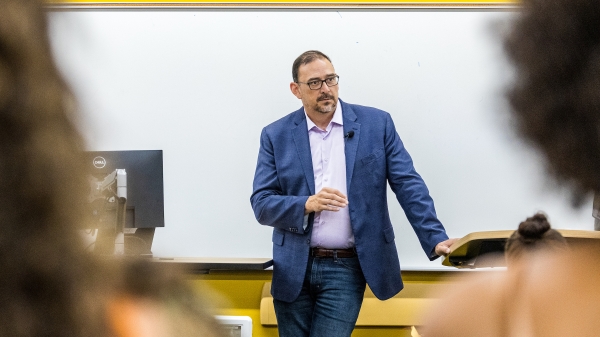
Arizona secretary of state encourages students to vote
Arizona Secretary of State Adrian Fontes looked right and left, taking in the more than 100 students who gathered to hear him speak in room 103 of Wilson Hall.He then told the students in the Intro…
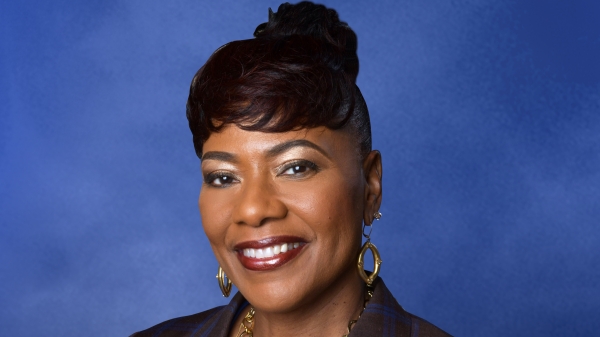
Peace advocate Bernice A. King to speak at ASU in October
Bernice A. King is committed to creating a more peaceful, just and humane world through nonviolent social change.“We cannot afford as normal the presence of injustice, inhumanity and violence,…
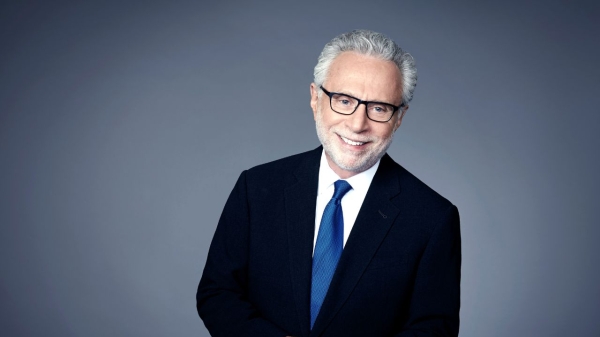
CNN’s Wolf Blitzer to receive 41st Walter Cronkite Award for Excellence in Journalism
Wolf Blitzer, the longtime CNN journalist and anchor of “The Situation Room With Wolf Blitzer,” will accept the 41st Walter Cronkite Award for Excellence in Journalism, Arizona State University has…
